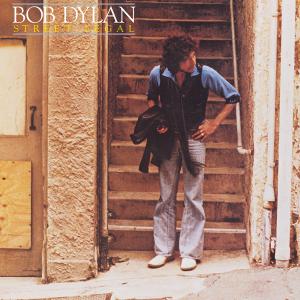
Street Legal (1978)

1. Changing of the Guards
2. New Pony
3. No Time to Think
4. Baby Stop Crying
5. Is Your Love in Vain?
6. Senor (Tales of Yankee Power)
7. True Love Tends to Forget
8. We Better Talk This Over
9. Where are You Tonight? (Journey
Through Dark Heat)
In Bob Dylan’s long and winding discography, consistency has never been a guiding principle. With each release, particularly from the late '60s onward, Dylan seemed determined to shed whatever skin he’d previously worn—often to the bewilderment or delight of his audience. So it was no great surprise when, in 1978, he returned with Street-Legal, a record marked not by lyrical revolution but by sound: polished, elaborate, and unmistakably of its time.
This was Dylan filtered through a distinctly late-’70s sensibility—an era when rock records began to reflect studio precision more than stage spontaneity. There is no disco here, mercifully, but there is an unmistakable slickness to the production: a brass section, female backing vocals, and a sonic clarity that seemed at odds with Dylan’s normally ragged aesthetic. In many ways, this was the musical equivalent of a midlife wardrobe upgrade—tailored, professional, and clean around the edges.
Much was made, at the time, of this apparent incongruity. Critics were quick to argue that the studio sheen was out of character, that Dylan’s natural habitat was dust and distortion, not gloss and groove. But his audience had grown older alongside him. These were no longer the freewheeling folkies of the Newport days; they were parents, professionals—perhaps even, God forbid, property owners. The mature tone of Street-Legal, then, might be read less as a betrayal than as an honest reflection of where Dylan—and his followers—now found themselves.
Where the album falters is not in its execution but in its songwriting. The arrangements are ambitious, the performances tight, but the material itself rarely rises to meet the treatment. For much of the record, Dylan appears curiously disengaged, as though he is inhabiting the form of the songs rather than animating them from within. The horns and harmonies may lend grandeur, but they cannot quite mask the middling quality of several tracks.
That said, there are moments of clarity. Is Your Love in Vain? stands apart—a track of uncommon tenderness, beautifully rendered, and perhaps the most emotionally transparent Dylan had sounded in years. Elsewhere, Señor (Tales of Yankee Power) hints at greater depth, though it feels oddly displaced here, a composition better suited to the gypsy textures of Desire than the polished environment of Street-Legal.
In retrospect, the album occupies an ambiguous space. It is neither a triumph nor a disgrace. It is Dylan in transition—trying on new clothes, testing the boundaries of his sound, and, as always, refusing to be pinned down. That the results are mixed is less important than the fact that, true to form, he remained unafraid to follow his instincts, even when they led him into unfamiliar territory.
If Nashville Skyline was Dylan’s curious detour through country crooning in the ’60s, Street-Legal is his adult contemporary excursion for the ’70s. Not essential, but not without value. An uneven work, yes—but one that still beats with the pulse of an artist moving forward, even if uncertain of the direction.
Go back to the main page
Go To Next Review